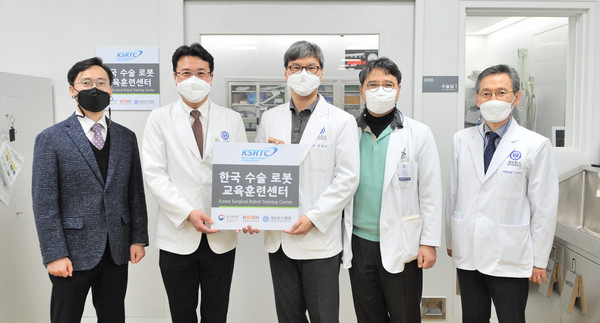Yonsei University Health System (YUHS) opened the Korea Surgical Robot Training Center (KSRTC) on Monday, saying it would become a stepping-stone for developing the domestic medical device industry.

KSRTC, set up within Avison Biomedical Research Center, will provide education concerning surgical robots as the first such facility in Korea, YUHS said. It will spend 2.5 billion won ($225 million) for this purpose over the next five years. Ten clinical departments, a robotic endoscopic surgery center, and KSRTC will form a broad network.
KSRTC is a sustainable growth-based education facility. It will establish education programs in open-platform, train future talents who will lead the domestic surgical robot industry, expand the popularization of homegrown medical devices, and improve their function. It will also verify medical devices and develop treatment protocol guidelines.
Eventually, KSRTC will build a collaborative R&D network platform for open medical devices to elevate the domestic surgical robot industry to a global level by accumulating intellectual property, such as technical ideas and know-how.
The center will start by building education infrastructure programs for spinal surgery robot, CUVIS-spine from robot maker CUREXO, and laparoscopic surgical robot, Revo-i from Meerecompany.
“This center will contribute to the globalization of Korea’s surgical robots, as it trains five domestic surgical robots for five years, and establish a system ranging from functional verification to guidelines,” said Professor Yi Seong, who also serves as director of KSRTC.

